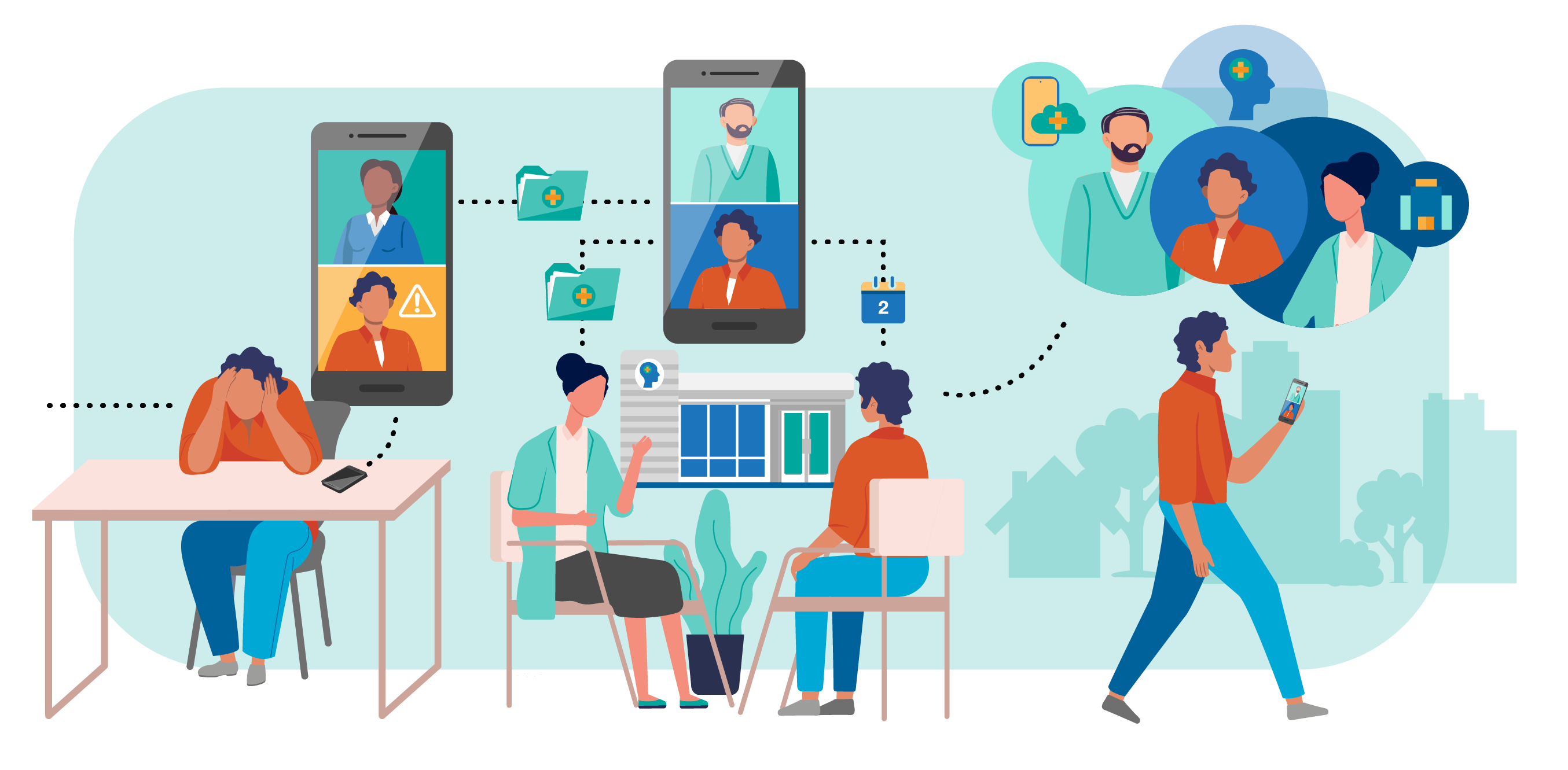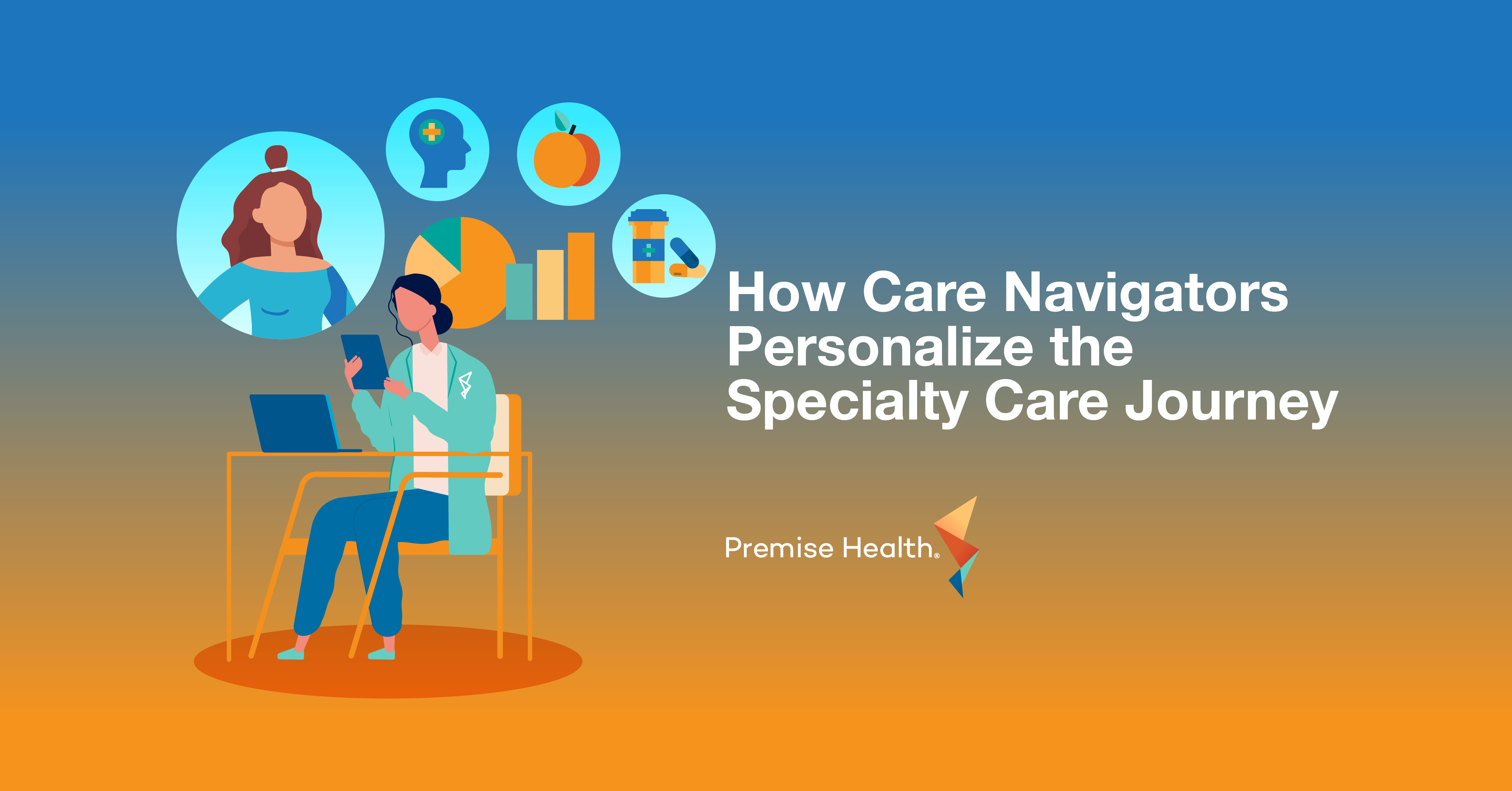How Employers Can Meet Mental Health Needs in a Post Pandemic World
Ten years ago, talking about mental health in the workplace was uncommon. Employers weren’t sure how to approach conversations, let alone how to help their employees that may have been suffering. Fast forward 10 years and a global pandemic later, mental health is finally getting the focus it deserves, with employees and employers alike proactively discussing the importance of elevating the conversation.
One in five Americans are affected by mental health conditions, according to the National Institute of Mental Health. Young adults, working parents, communities of color, and essential workers are all feeling stressed, burnt out, and lonely, feelings that were only heightened during the COVID-19 pandemic. Employers are feeling the effects as well – an estimated $190 billion is lost in annual earnings due to absenteeism and lost productivity, which often stem from poor mental health.
Leaders are being called on to do more to support the mental wellbeing of their workforce. An important first step is showing employees they care and emphasizing that taking care of their mental health is important. Only then can employers take the steps below to better address the needs of their employees.
Access options
Equal access to care services for the whole population has become more important than ever, particularly for dependents and historically marginalized communities. With the shift to remote work during the COVID-19 pandemic, employees now expect to have access to both physical and digital options to provide anytime, anywhere care.
These expectations are forcing employers to seek digital solutions that offer national, on-demand access, as well as local, personalized care options, to help address the mental health of their employees. The ideal solution would have a dedicated virtual behavioral health team along with access to in-person care with a local behavioral health counselor that exclusively serves their population. A combination of both digital and physical access to care makes it more convenient for members to take care of themselves, which leads to better outcomes in the long run.
However, not all partners offer the hybrid approach to care, which makes choosing the right one crucial. Not only will it help employers stay ahead of the curve, but it will also provide their people with access to healthcare when and where they need it.
Integrated care
Behavioral health is an integral part of a holistic primary care offering. When care is integrated, behavioral health professionals can actively work as part of the broader care team and manage referrals, cultivate provider-member relationships, and tap into community resources when needed to further address social determinants of health. Here’s an example:
A comprehensive behavioral health solution in action
An employee is struggling alone but doesn’t have anyone to turn to, so they decide to schedule a virtual visit with a primary care provider. They’ve been feeling extremely sad, lonely, and anxious and haven’t seen anyone in over two weeks. The provider asks them a series of screening questions before determining they should speak with a behavioral health counselor.

The provider consults with someone on the centralized care team and helps the member schedule a visit with a virtual counselor for talk therapy. The virtual counselor determines the member would benefit from additional follow-up sessions. They schedule an in-person appointment with the health center counselor (or community provider) the following day. Because care is integrated, the virtual behavioral health counselor works alongside the local counselor to ensure the member has access to counseling when and where it’s most convenient – either digitally or in-person.
A whole person focus
Social determinants of health, the conditions in our environments where people live, work, and play, can affect a wide range of health outcomes and risks. For example, research has found poor and disadvantaged populations are most affected by mental disorders which are often caused by things like employment status, financial strain, insecure or unpredictable living conditions, and poor diet – all social determinants of health.
Their profound impact on health outcomes makes it critical for employers to focus on identifying their most at-risk members who may have been adversely affected by the pandemic. Food insecurity, housing instability, and financial strain can take a toll on someone’s mental health, so what can employers do?
By ensuring their healthcare programs address social determinants of health, employers can assist their workers in having equal opportunities to make choices that lead to good health. Offering resources like an employee assistance program (EAP), which are work-based intervention programs that identify and assist people in resolving personal problems that could adversely affect their health, are a great option. Another helpful resource is Aunt Bertha, a free online platform that makes it easy for anyone in the U.S. to find and apply for social services just by typing in their ZIP code, such as Medicare, food stamps, and housing assistance. The platform is able to pull results from applicable national, state, county, city, and even neighborhood programs.
Organizations should also think about the informational materials they make available – are they offered in multiple languages so everyone can get the information they need? Are there handouts or flyers posted that share community resources where members can go for help? These small steps can make a big difference in the overall wellbeing of a population.
The demand for behavioral healthcare is here to stay, especially as employers and new generations of workers continue to de-stigmatize conversations about mental health. Premise Health makes it easier for members to feel at ease with our behavioral health product that offers a variety of care, both in-person and virtually. Members receive support for their emotional and mental wellbeing, with absolutely no complicated third-party outsourcing necessary. Whether measures are preventive or involve critical interventions, our providers are there to facilitate high-quality care. Don’t be left behind – connect with us to find out what a behavioral health solution could look like for your population.
Next on industry insights.

From Crisis to Care: Addressing Mental Health Challenges for Union Members
Read the Blog
One Less Errand, One Healthier Member: The Power of 90-Day Prescriptions
Read the Blog